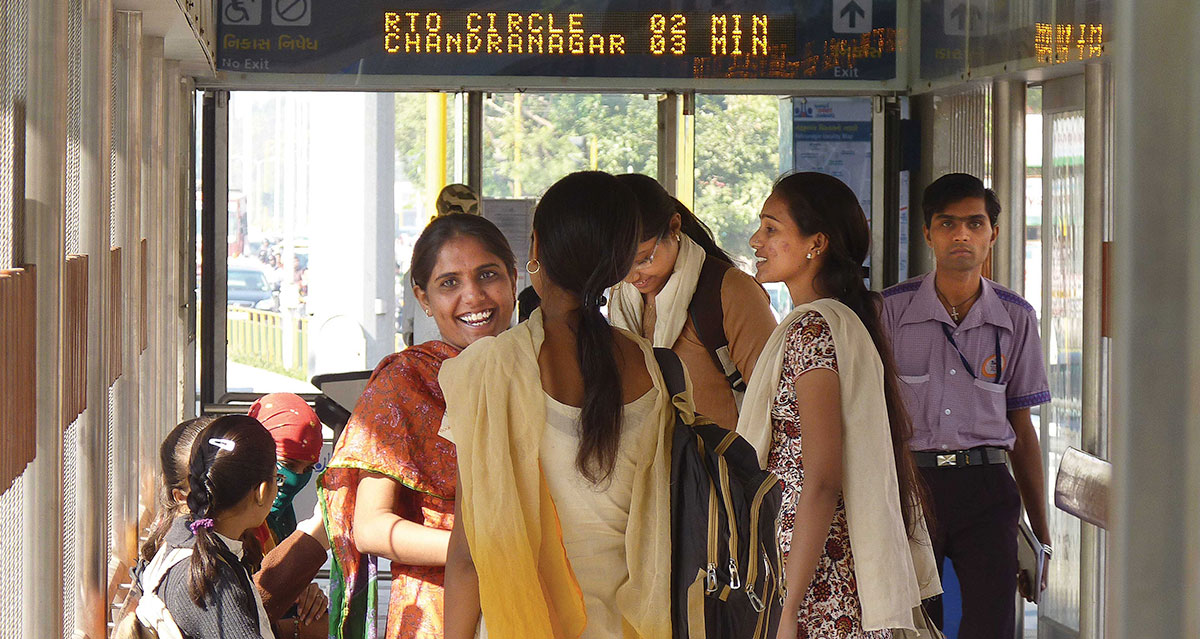At COP26, India’s Prime Minister committed to achieving net-zero emissions by 2070. Walking, cycling, and promoting the use of mass transit were among some of the changes that were emphasised in his speech. Subsequently, India also submitted a national Long-Term Low Emission Development Strategy (LT-LEDS) at COP27 emphasising strategies for creating efficient, inclusive, and low-carbon transport systems.

Sustainable mobility has been an area of focus for the national government, especially with the launch of the Smart Cities Mission of the Ministry of Housing and Urban Affairs in 2015, of which mobility was a key element. To accelerate the transformation of streets across the country, the Mission launched the Complete Streets Framework Toolkit in 2019, with inputs from ITDP India. The document aimed to guide all the 100 cities selected under the Mission to create streets that prioritise walking, cycling, and public transport. Additionally, ITDP supported the Mission to build the capacity of city officials through workshops.
In response to the Covid-19 pandemic, ITDP joined hands with the Mission to launch a series of Urbanlogue webinars to support city officials in responding to the crisis and prepare for a recovery for the transport sector. Building on the success of the series, ITDP India collaborated with the Mission to launch three ambitious national programmes—the India Cycles4Change, Streets4People, and Transport4All Challenges—to support cities across the country in improving cycling, walking, and public transport. These cities are now witnessing the on-ground implementation of healthy streets, bolstered by high-quality designs, community support, and institutional reforms.
As part of committees formed by the Indian Roads Congress (IRC), ITDP India has supported the drafting of various national guidelines such as BRT Guidelines, Planning and Design of Urban Roads, and the revised Regulation and Control of Mixed Traffic in Urban Areas. These guidelines will apply to all cities across India and guide them towards low-carbon mobility.
ITDP India is working with the Association of State Road Transport Undertakings (ASRTU), the apex coordinating body of all public bus operators under the Ministry of Road Transport and Highways as a knowledge partner.







